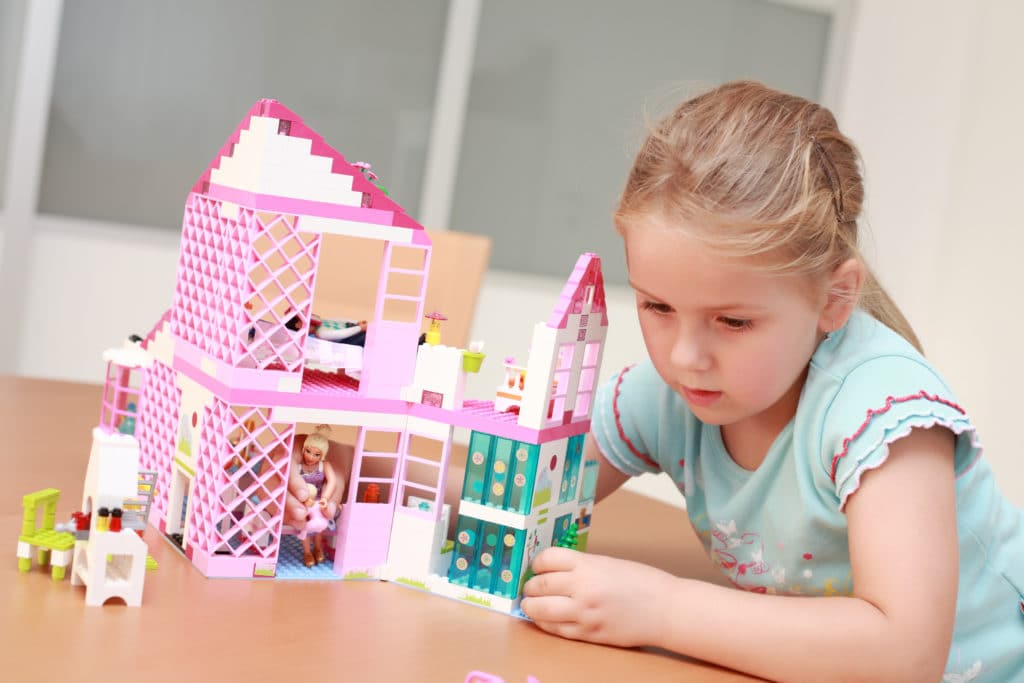One of the greatest challenges as a parent is being faced with challenging child behaviour that does not improve. Whether you’re facing daily power struggles, sibling rivalry aggression, or meltdowns, this one approach is backed by research and works. As you read on, you will discover the basics of setting up a foundation for success as well as gain access to tools. You will feel empowered to address the most challenging behaviour from your strong-willed child. Here are the best positive parenting strategies developed from developmental psychology and backed by extensive research including Dr. Ross Greene’s revolutionary approach to difficult and challenging behaviour.
Two parents of a strong-willed child were at their wit’s end. At five-years-old, their daughter, Beth was becoming more and more challenging to manage.
However, mornings always felt hopeful. The new day was a clean slate not yet marked by power struggles.
Beth and her younger sister Emma would burst through their parents’ bedroom door in their footed pyjamas. The girls would bound into bed smiling and giggling. As their mother slowly rose and their father pretended to still sleep, the girls would wiggle their way down under the oversized down quilt. Their mother would do her best to get a couple more minutes of shut-eye by pulling both girls into her embrace.
It never worked. Underneath the covers, their voices would plead, “Mommy, get up! Get up!”
Related reading: This is the Key to Parenting a Strong-Willed Child

It was the calm before the storm.
As their mother got the coffee on and the lunches for daycare and school ready, Beth would set up her Fisher Price dollhouse. As she put each plastic furniture piece in its proper place, little Emma wanted to play too. Before their mom had a chance to place the girls’ fruit snacks in their lunch kits, both girls were screaming. As soon as Emma didn’t play the “right” way, Beth hit, chased and called her names.
But that was only the beginning…
In the next hour or so before leaving the house, Beth entered into power struggles over:
- getting dressed,
- having her hair brushed, and
- going to school.
During this time she screamed, cried and told her parents they were the worst.
Once home from school, she struggled when her sister got to choose what book their mother read or what TV show they watched. She would lash out at Emma, refuse to sit at the dinner table to eat, and did everything in her power to avoid bath time.
Her mother purchased armfuls of parenting books and poured over them highlighting each important piece of information. She would relay the strategies she read to her husband. He was on board. They did their best to be as consistent as possible. But Beth’s compliance only got marginally better. Neither parent could understand why she couldn’t make better choices. In fact, they asked repeatedly, “Why are you making such bad choices?” Beth never had an answer.
Related reading: 10+ Powerful Strategies That Will Calm Your Angry Child
This post contains affiliate links. If you choose to make a purchase the price you pay is the same and I will receive a commission.
Challenging child behaviour: This is the game changer
When parents like Beth’s feel like they’ve tried everything – every ‘get kids to listen’ strategy, every sibling rivalry strategy, every positive parenting strategy – and just don’t know what else to do, there’s hope.
Kids with behavioral challenges are not attention-seeking, manipulative, limit-testing, coercive or unmotivated. But they do lack the skills to behave appropriately.
Adults can help by recognizing what causes their difficult behaviors and teaching kids the skills they need.
Dr. Rob Greene, child clinical psychologist and professor
The key to improving child behaviour is to stop thinking of it as a matter of choice. Instead, parents must see the challenging behaviour as the result of the child lacking the skills. The child lacks the skills to behave appropriately in particular contexts.
If you reflect on your own children, you will likely come up with situations where your child is able to execute the necessary skills and times where they can’t.
For example:
- naptime may be a breeze but bedtime is a battle,
- he doesn’t hit friends at school but hurts siblings at home,
- she has meltdowns when mom says no but not his daycare provider, or
- he can sit to be read to by mom or dad but can’t sit still at school.
How to effectively address challenging child behaviour
Stop thinking of the child’s behaviour as a bad choice, but as a lagging skill.
This is an honest mistake many parents make. Instead, think of the child as having an unsolved problem and he lacks the skills for the solution. When approaching the challenging behaviour it helps to reflect on how you would support your child if he was struggling with math or science. Punishment doesn’t make a child a stronger student or more emotionally competent. Instead, the child needs guidance and support.
Identify the child’s unsolved problems.
Going through the list of unsolved problems on page 4 of this PDF, check off all of the difficulties your child has. Then, write out the specifics of each. So, if your child has, “Difficulty handling transitions, shifting from one mindset or task to another,” you would write out each instance she struggles with this unsolved problem. It could be your child:
- has difficulty turning off TV and moving onto another task,
- struggles leaving the park,
- has difficulty leaving school when friends are still outside playing.
Each one of these is a separate unsolved problem. Find out more about how to do this in this book.
Tackle one problem at a time.
In his book, The Explosive Child, Dr. Green illustrates why it is effective to address one unsolved problem at a time. (It’s probably best to choose the one your child is struggling with the most.) The reason is so that the child has the energy to focus on her lagging skill instead of a litany of other directions on top of it all. Read more about this here.
Problem-solve outside of the heat of the moment.
When the time is right, sit down with your child and discuss the difficulty she is facing. Ask questions about how she feels and why she thinks that may be. Consider using a ‘feelings cheatsheet’ to use with your child during problem-solving and in the heat of the moment to help you better understand her struggles. Then, brainstorm ways to address this problem in the heat of the moment. In the book, How to Talk So Kids Will Listen and How to Listen so Kids Will Talk, the authors suggest writing down any solution that comes to mind. Then, the parent and child can go over the list and decide on one or two options that are win-win.
Related reading: Your Kids Will Listen if You do THIS
Consider using social stories to scaffold the child’s lagging skills.
Social stories act as an invaluable tool for challenging child behaviour. Create a story about the unsolved problem your child is facing using the emotions you have identified, talk about his past struggles, then talk about the problem-solving coming into play and how he feels once he’s executed his new skill.
Using Beth as an example, this would be:
Beth was a wonderful girl who set up the most beautiful play scenes. Every morning her sister Emma would come and want to play. When Emma moved Beth’s furniture around, Beth became angry. Beth wanted to protect herself and her toys so she hit and screamed. Beth and her mommy and daddy worked on this problem. Beth’s mommy and daddy promised to talk to Emma when Beth was playing. Beth also said she would say, “Help!” loudly when she needed help. In time, Beth started using her words more and Beth’s mommy and daddy helped more. Now, Beth is happier, Emma is happier, and Mommy and Daddy are happier too.
Challenging child behaviour: What to expect from here
These research-backed strategies for challenging child behaviour are effective but not instantaneous. It can take weeks for a child to master new skills and learn to manage their emotions and make their new skills habit. Once the changes start to take place, the pressure that is lifted off of the family is palpable and the happiness of the child is life changing.













4 comments